The pricing mechanism requires rationalization by the regulators.
After the Coronavirus inflicting India severely in different ways in the year 2020, today the country is proud to have two manufacturers of COVID-19 vaccine namely Bharat Biotech and Serum Institute of India producing Covaxin and Covishield respectively. Unequivocally, the Government’s push behind the vaccines was fructifying in an unusually short period of less than one year. Mired in some controversies about the testing, efficacy, and outcome of administering these vaccines, the vaccination drive got formally launched in the second fortnight of the first month of the year 2021. Simultaneously, the Government kicked off the massive campaigning through print/audio/video messages, Tika Mahotsav, etc. to allay the fear and encourage people to get vaccinated against COVID threat. Nevertheless, the requirement of canvassing for getting vaccinated against the life-threatening ailment points towards reluctance of the some in public for whatsoever reasons. As a result, the health system in the public sector and private sector is collectively continuing the vaccination free and at a certain price respectively amidst the prevailing COVID infection in the country.
Also read: Is COVID Giving Birth to an Inevitable Climate-Crisis?
The surge in COVID cases after the first anniversary of the Coronavirus pandemic in India and the proclamation by the Government for ensuring vaccine availability to all Indians above 18 years of age from 1st May 2021 has made the vaccine requirement humongous. The ongoing dreadful life-snatching COVID spurt is attributed to the mutated form of SARS-CoV-2 as per the studies of the scientific community meaning thereby that the vaccines have to tackle the mutated form of Coronavirus as well. Consequently, the vaccine makers have to expand the production capabilities to vaccinate the eligible numbers as well as do the needful to ensure that the vaccine’s potential to combat Coronavirus is fully exploited. Thence, the initial vaccine development being supported by funds provisioned by centre, the vaccine makers presently require much more resources while sustaining the obligation of low priced vaccine availability to the Government of India.
New rates rolled out by the Serum Institute and Bharat Biotech are the same as Rs.150/- per dose for the Union Government while the differential treatment for states and private supply is evident. Per dose charge of Rs. 400/- and Rs.600/- are levied for selling the respective vaccines to the state while it is at Rs. 600/- and Rs.1200/- for the sale to private hospitals by the Serum Institute and Bharat Biotech respectively. Undoubtedly, the varying prices to state and private sector are raising eyebrows of the public at large.
Also read: Has COVID-19 Taught Us the Humility to Tackle Climate Change?
Firstly, the different prices for both the vaccines do not sound reasonable because of the simple reason that both state and centre will be paying the vaccine cost from the taxpayer’s money. It is the Consolidated Fund of India that is spent by the democratically elected Governments at the centre or at the state, so the rationale behind the price stratification is not clear.
The pricing mechanism requires rationalization by the regulators else, the public will be perceiving that the efficacy of one vaccine is better than the other. Eventually, the monopolization in selling vaccines in the much-hyped world’s largest Vaccination drive in India can not be ruled out.
Secondly, the different prices for private hospitals functioning in a common regulatory framework in the country by the two manufacturers does not augur well. How come the vaccine brought out for a similar purpose by one is costing just half of that of the other? The pricing mechanism requires rationalization by the regulators else, the public will get a wrong message that the efficacy of one vaccine is better than the other. Eventually, the monopolization in selling vaccines in the much-hyped world’s largest Vaccination drive in India can not be ruled out.
Also read: Dealing with COVID-19’s fury on the overweight-obese in India
Further, the differential pricing scheme to public sector hospitals of centre/state governments, and private sector hospitals are likely to nucleate corrupt practices of subsidized vaccines being sold in the private sector. Quite likely, the regulatory mechanisms shall be put in place, but the breeding of corrupt practices due to price stratification can not be dismissed like other sectors where too the regulatory framework never permits for corruption.
The price fixation of the vaccines that are just meant to provide somewhat protection to the COVID infection entails crucial interventions by the regulatory bodies and the Government. With the vaccination drive on the way in the country, the disparate pricing of the COVID preventing vaccine by the native vaccine manufacturers in the middle of vaccination is amoral and calls for rationalization in the larger interest of the nation.
Also Read: COVID-19 Vaccine: Who First?
Disclaimer: The views expressed in this article are of the author solely. TheRise.co.in neither endorses nor is responsible for them.
About the author
Sneha Yadav is an electronics engineer with a postgraduate degree in political science. Her interests span contemporary social, economic, administrative, and political issues in India. She has worked with CSDS-Lokniti and has been previously associated with The Pioneer and ThePrint.

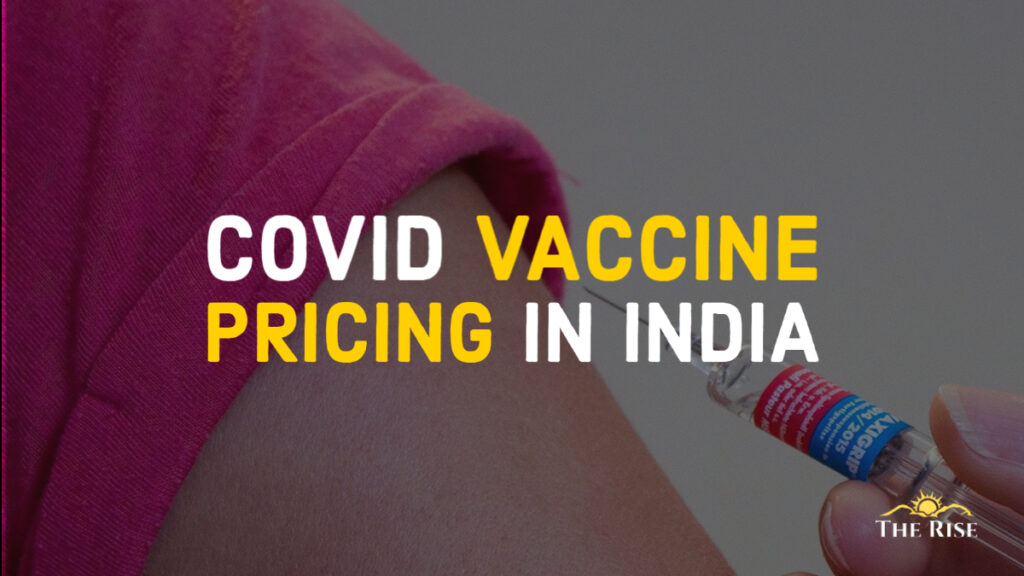


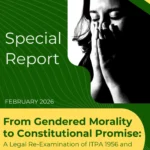

























































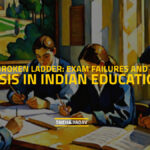




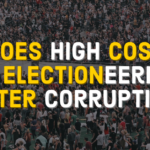

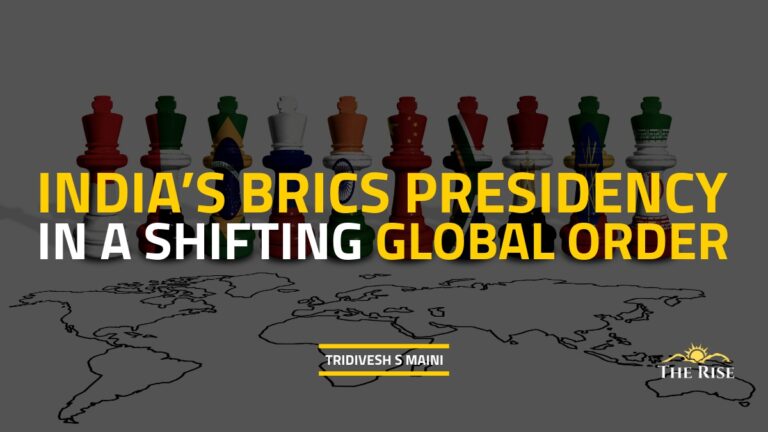



Entrepreneurship, as a factor of production, needs reward and compensation for risk. The reward should, however, be reasonable and must not border greed. There was a time in this counter when there was a ceiling on the corporate profit. I think we should return back to the same. At times, loving backward is like reform and step forward.
Pingback: India’s Treatment of the Dead: Shame on Humanity or Shame on Governance? - TheRise.co.in
Pingback: The Dead Cannot Cry Out for Justice - TheRise.co.in
Pingback: We, the Guinea Pigs of the World - TheRise.co.in